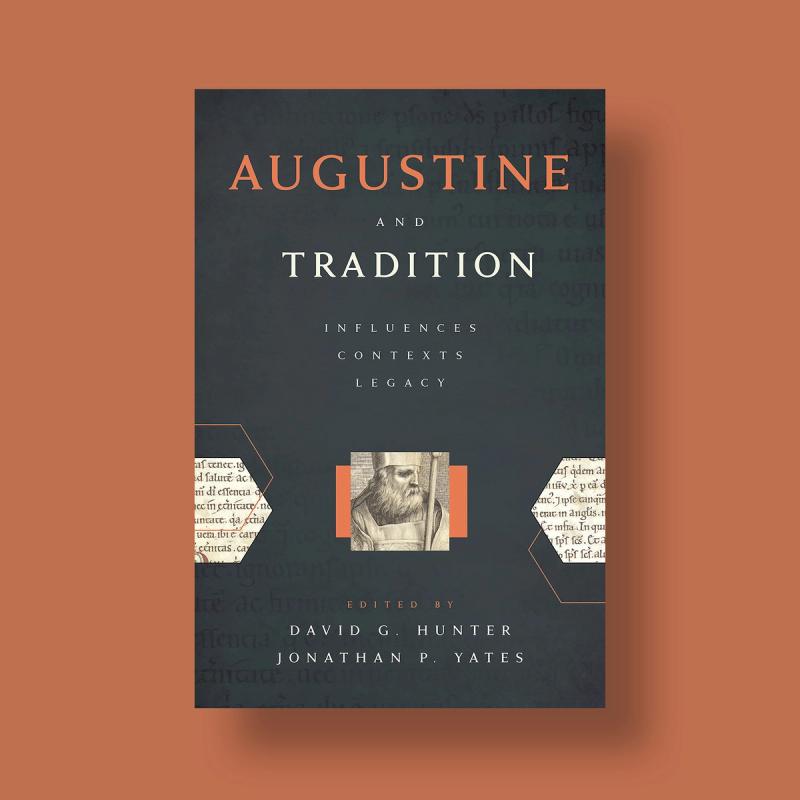***
Eerdmans | 2021 | 501 pages (hardcover) | $80.00
The frequency with which companion volumes like this come out from various presses demonstrates the enduring legacy of the Doctor of Grace. In the present rendition of a companion to Augustine, focused on the context and legacy of Augustine, David Hunter and Jonathan Yates have assembled an eclectic group of patristic scholars, moving beyond some of the typical names in Augustinian studies. Written in honor of Patout Burns, this edited volume covers some well-established questions in Augustine, but several essays do a tremendous service by forging new paths of investigation.
Joseph Trigg’s contribution on Origen’s influence on Augustine provides a helpful look at the interrelationship between these two pillars of early Christianity and their indebtedness to the platonic tradition. Many have critiqued Augustine’s “Platonism,” but few have seen fit to look for platonic overlaps and show his similarity to the Greek East in terms of plundering Plato in service to Christ. Similarly, Mark DelCogliano reexamines some of the evidence on what Augustine knew of the Cappadocians to find, like Trigg, that Augustine should not be read as a world apart from the philosophical world of the Greek East. Even just the simple point that Augustine knew and translated a sermon from Basil of Caesarea can hopefully put to rest the repeated claims that Augustine could not read Greek. Taking the question of Plato head on, John Peter Kenney rightly brushes aside the position that Augustine was overly reliant on Plato at the expense of Scripture: “To read Augustine, then, requires following him through that transformation from discursive philosophy into scriptural contemplation” (128). Indeed, it is the Word made flesh who changed Augustine’s perspective on divinity and philosophy, as Scripture revealed to him that God came to teach humility.
Moving on to the two essays that will most shape my own reading of Augustine, John Cavidini and Michael Cameron deftly expound on Augustine’s ability to read Scripture in concert with church universal. Cameron, who knows Augustine’s reading of Scripture as well as any scholar, tackles the twin question of authorial intention and interpretative diversity to highlight how Augustine might aid contemporary Christians in their study of Scripture. He writes, “A strong community gathered around the text hears a call, not to generate biblical position papers that only reveal correct answers from the back of the holy Book, so to speak, but to give counsel and training in how to read with love” (23). For Augustine, multiple voices and interpretations are not to be understood as a problem, but as part of the graced community.
Cavadini’s study on the influence of Ambrose on Augustine should have a lasting impact on Augustinian studies. The enchanting beauty of the Deus Creator Omnium not only helped Augustine grieve the loss of his mother as noted in the Confessions, but its impact can be felt through to the very end of his life in the Pelagian controversy. After a careful study of Ambrose’s impact on Augustine throughout his life, Cavidini concludes with the Pelagian controversy.
What Cavadini begs us to consider is that the Pelagian controversy should not be divorced from the larger corpus. Augustine does not fundamentally change his theological or philosophical writing out of old-age bitterness. Rather, a clear thread runs through Augustine’s conversion, hastened by careful meditations and the poetry of Ambrose, to his final writings on the nature of God’s providence and its fulfillment in salvation. No doubt the writing style is different, but despite the perennial attempts to pick the Augustine we like and disregard the Augustine we hate, Cavadini gives us reason to be sympathetic to the whole oeuvre of Augustine from conversion to death.
To conclude, scholars of Augustine will find much to engage with in this volume. I have not mentioned many of the helpful perspectives on the larger North African context from Alden Bass, Geoffrey Dunn, and William Tabbernee. The title suggests more engagement could have been done on the legacy of Augustine in the Protestant and Modern contexts, but the Brian Matz piece on the Middle Ages at least gives some justification for putting “legacy” in the subtitle. Matz’s article nods toward later debates on predestination and readings of Romans through an Augustinian lens, but it also calls into question why the legacy portion ends with some rather obscure ninth-century debates. Surely no edited volume can encompass all of the great African bishop, but it does raise the question of why the editors felt the need to designate this volume as encompassing Augustinian tradition. Although I end with a slight critique, this should in no way detract from the quality and insight of so many of the essays that will profit any scholar of Augustine or the patristic era.
Charles G. Kim Jr. is assistant professor of theology and classical languages at Saint Louis University.







